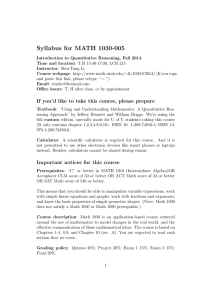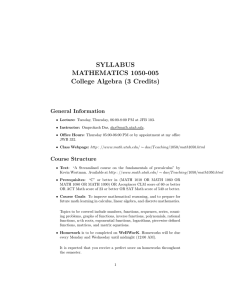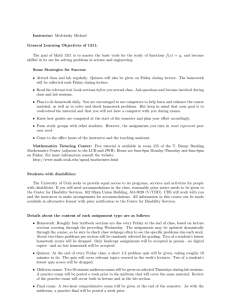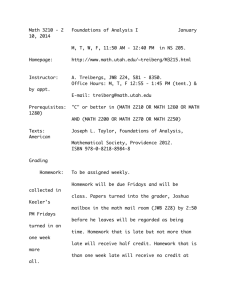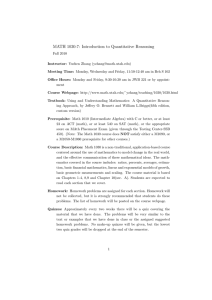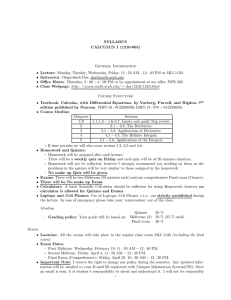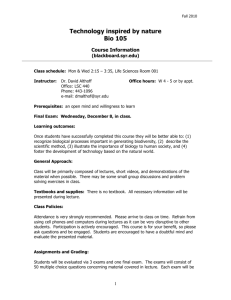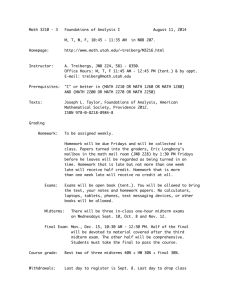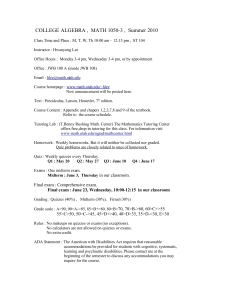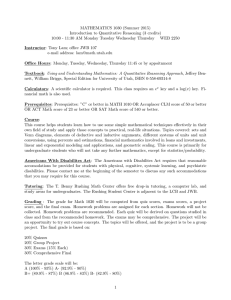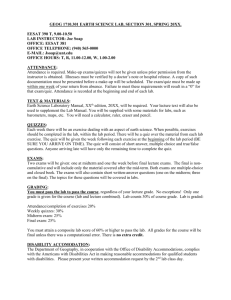SYLLABUS MATHEMATICS 1030 Introduction to Quantitative Reasoning (3 Credits)
advertisement
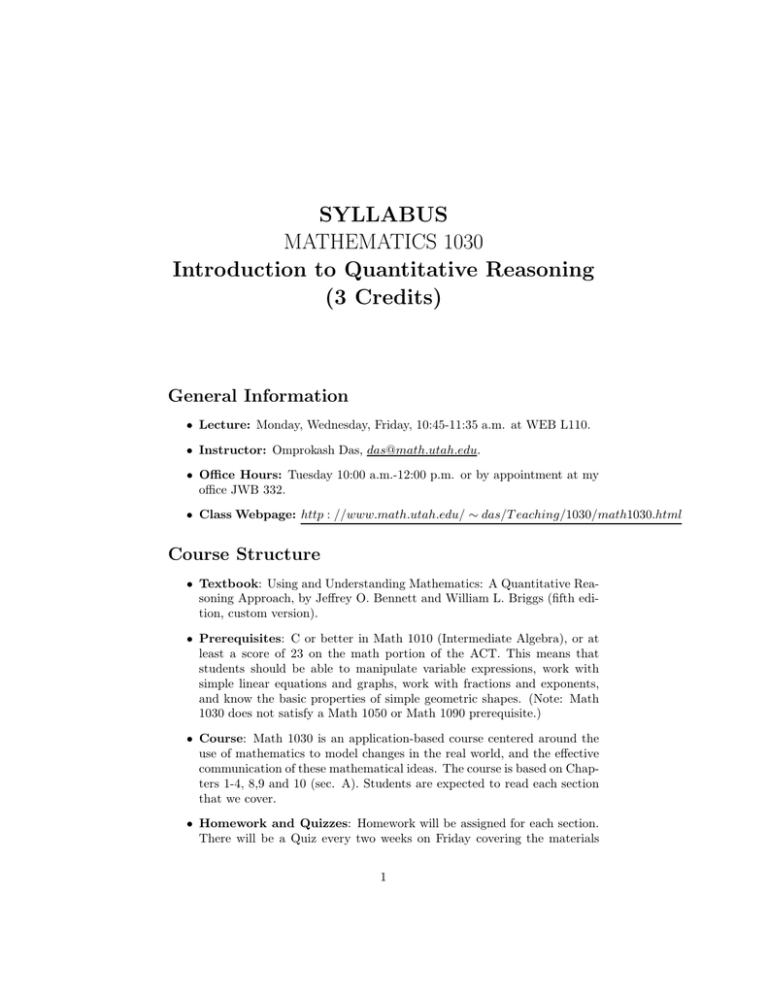
SYLLABUS MATHEMATICS 1030 Introduction to Quantitative Reasoning (3 Credits) General Information • Lecture: Monday, Wednesday, Friday, 10:45-11:35 a.m. at WEB L110. • Instructor: Omprokash Das, das@math.utah.edu. • Office Hours: Tuesday 10:00 a.m.-12:00 p.m. or by appointment at my office JWB 332. • Class Webpage: http : //www.math.utah.edu/ ∼ das/T eaching/1030/math1030.html Course Structure • Textbook: Using and Understanding Mathematics: A Quantitative Reasoning Approach, by Jeffrey O. Bennett and William L. Briggs (fifth edition, custom version). • Prerequisites: C or better in Math 1010 (Intermediate Algebra), or at least a score of 23 on the math portion of the ACT. This means that students should be able to manipulate variable expressions, work with simple linear equations and graphs, work with fractions and exponents, and know the basic properties of simple geometric shapes. (Note: Math 1030 does not satisfy a Math 1050 or Math 1090 prerequisite.) • Course: Math 1030 is an application-based course centered around the use of mathematics to model changes in the real world, and the effective communication of these mathematical ideas. The course is based on Chapters 1-4, 8,9 and 10 (sec. A). Students are expected to read each section that we cover. • Homework and Quizzes: Homework will be assigned for each section. There will be a Quiz every two weeks on Friday covering the materials 1 that we have done. Each Quiz will contain at most 3 problems and will be of 15 minutes duration. Homework will not be collected, but it is strongly recommended that students do these problems. Also, among the 3 problems of a Quiz at least one of them will be directly taken from the Homework problems assigned during the lectures of last two weeks, so do work on your Homework. Another important thing to be noted, No make-up Quiz will be given, but the lowest two quiz grades will be dropped at the end of the semester. • Project: Students will have one project to turn in. The project will be due 30th November 2010. The list of topics will appear on the course home page during mid October 2010. All the necessary information will be given in class and online. Students will work in groups of four or five on a topic that the group selects. Late projects are not accepted. • Exams: There will be two exams (50 minutes each). • Final Exam (comprehensive/departmental): Friday 17th December 2010, 3:30 p.m.-5:30 p.m. • Calculators: Students will need a calculator for this course. A scientific calculator will be sufficient. • Withdrawals: Students may withdraw from the class without consulting anyone until 22nd October 2010 (Friday). If a student withdraws before 1st September 2010 (Wednesday) there will not be any tuition penalty. Grading Quizzes Project • Grading policy: Your grade will be based on: Exams (2) Final exam 20 20 30 30 % % % (15 % each) % Exams • Location: The midterm exams will take place in class. The room for the final will be announced. • Dates: – First Midterm: Monday 4th October 2010, 10:45-11:35 a.m. – Second Midterm: Monday 29th November 2010, 10:45-11:35 a.m. – Final : Friday 17th December 2010, 3:30 p.m.-5:30 p.m. • Exam Policy: – All exams are closed book. 2 – Absence from an exam will be excused if and only if the student can provide verifiable and convincing evidence that he/she has a significant illness or serious family crisis that will prevent him/her from attending. Except under extremely unusual circumstances, the student must inform the instructor in advance of the missed test. The student is expected to promptly make arrangements with the instructor to make up the test. • Tutoring: The Rushing Math Center offers free drop-in tutoring, a computer lab, and study areas for undergraduates. The Rushing Student Center is adjacent to the LCB and JWB. The hours for Fall semester are: 8:00-20:00 Monday through Thursday and 8:00-18:00 on Friday. The tutoring center will open the second week of classes. Your Responsibilities Check your university email regularly as important emails concerning exams or class might be sent there. Also check the class webpage regularly. You can interrupt me anytime during my lecture if you have any question. ADA Statement The Americans with Disability Act requires that reasonable accommodations be provided for students with physical, cognitive, systemic learning and psychiatric disabilities. The student needs to have such a disability approved by the Disability Service Office (162 UNION, 581-5020) in order to have the accommodations provided. The instructor need to be informed about such a disability and approved accommodations at the beginning of the semester. 3
